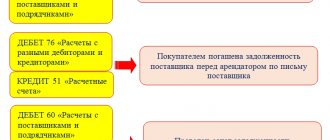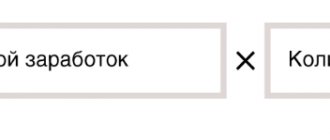A mortgage loan can be issued for 15–20, or even 30 years, depending on the conditions of different banks. The longer the term, the lower the monthly payment. But in the end, you will overpay more in interest. Therefore, many borrowers try to repay the loan ahead of schedule at the first opportunity: a bonus at work, a salary increase, receiving maternity capital or other social benefits, and so on.
The monthly payment amount for all loans should not exceed a certain percentage of family income. Usually it is 50%. Some banks may “allow” more. But here you should think carefully: will the remaining money be enough for a comfortable life for your family.
Some banks specifically recommend that clients take out mortgage loans for a maximum term of up to 25 years, but repay them early. “This allows you to get a comfortable monthly payment amount, and then make early repayments, reducing overpayments,” notes Svetlana Remenyuk, head of the Rosbank Dom Client and Partner Sales Center.
What options are there for early mortgage repayment?
As it turns out, paying off your mortgage early does not mean that if you bring one hundred thousand rubles to the cash desk of a financial institution, your debt will decrease by exactly that amount. Banks wouldn't be banks if they didn't try to make a profit out of your every move. Therefore, when you bring a certain amount to pay off a debt, only part of it (and not always the majority) goes towards these needs. An impressive amount can pay off the interest debt, for example. Or it is charged as a fee for using a loan, or something else that is completely legal, but terribly unpleasant for the borrower. Therefore, as soon as you come to your bank branch with such a request, the operator will offer you two ways to repay the loan early:
- With a reduction in payment terms. That is, by depositing the amount, you do not repay the loan body (this is the amount that you owe the bank without taking into account interest), but “cut off” the number of months that you must make payments. Thus, by regularly making contributions more than the established ones, you can completely repay the loan not in 15 years, but in 10. At the same time, the monthly payment amount will not change for the entire term of the loan agreement.
- With a decrease in the loan amount. In this case, everything acquired through back-breaking labor goes towards repaying the debt and interest on it (it varies from bank to bank, but on average the amount deposited is split in half for both of these purposes). By repaying the loan early in this way, you will also make monthly payments for the agreed fifteen years, but the amount will be less and less with each payment.
And how to choose? What are the advantages of each method? Nothing. One hundred and one early loan repayment calculators on the Internet show that no matter which scheme you choose, the savings (read: reduction in overpayments) will be the same. “Then what’s the point?” - the discouraged reader will exclaim. And the meaning depends on how confident you are in yourself and in the future, forgive the advertising. In other words, if your financial condition is rock-solid, you are an important employee, adored by your superiors, and you will not be fired from your position at any price. You can choose to reduce payment terms. Then you will quickly get rid of your debts without fear of worsening your financial situation.
If your well-being is like a circus stuntman who rides a circus unicycle on a high-tensioned rope and at the same time juggles monkeys (read - there is no confidence in the future), then it is best for you to repay the loan amount so that the monthly payment quickly decreases to the amount that you would be comfortable paying even with the loss of your job and financial well-being.
We tell you what early and partial early repayment of a mortgage is in 2021 and how to correctly make payments to the bank
Early repayment of mortgages is a general trend in Russia. The average term of mortgage loans issued in Russia in 2021 is 18.1 years, while loans are usually closed in seven to ten years. Often, clients are afraid to take out a mortgage for a short term due to high monthly payments, uncertainty about the stability of the economy and their financial well-being, so they prefer to play it safe and initially take out a loan for a longer period, says Irina Vekshina, head of the mortgage lending service.
We tell you which schemes for early repayment of housing loans are most beneficial for borrowers and how to repay a mortgage correctly.
When is it profitable to pay off your mortgage early?
All Russian banks provide their borrowers with the opportunity to repay their mortgage loan early - either in full or in part. The benefit from early repayment directly depends on the remaining term of the loan - the closer to the end of the loan term, the less profitable it is to repay the mortgage early. In the long run, it is more profitable to shorten the period. But if you choose to reduce your monthly payment, you can feel the savings right away.
“The total amount of overpayment can be reduced through early repayments, which is especially important during the first third of the loan’s life. Banks adhere to the annuity payment scheme, so the borrower first primarily repays the interest, and not the body of the loan itself,” explains Natalia Kuznetsova, general director of the BON TON real estate agency.
According to the law
Early repayment is prescribed in Federal Law 284 of October 19, 2011. The loan amount provided at interest to the borrower may be repaid ahead of schedule in full or in parts, provided that the lender is notified of this at least 30 days before the date of such repayment. The agreement may establish a shorter notice period for the bank. The bank must be notified in advance of the decision, otherwise the payment made will not be counted and will be posted next month.
Early mortgage repayment options
There are several options for early repayment: reducing the monthly payment, reducing the mortgage term, or combining these two schemes. To choose the right option, the mortgagee must evaluate what is more important to him: paying less money to the bank or reducing the monthly payment amount to reduce operating expenses.
Reducing the mortgage term
The option of shortening the loan term is the most beneficial for minimizing overpayments on the loan. When the term is shortened, the portion of the monthly payment that goes toward repaying the principal debt increases and the interest portion decreases. Further repayment occurs more dynamically, since less interest is charged on a smaller amount, and the overpayment is reduced.
Reducing mortgage payments
If the payment is reduced and the term remains the same, the balance of the principal debt is extended over the remaining term, and the schedule is rearranged in such a way that most of the monthly payment goes to pay off interest, and a smaller part goes to the principal debt.
“In general, it is more profitable for borrowers to agree to reduce the loan term, since in this case the amount of overpayment to the bank (that is, accrued interest) is reduced. However, each borrower himself determines which option for partial early repayment of the mortgage is more convenient for him, because when making this choice, several important factors must be taken into account (life situation, current financial situation, etc.),” says Vekshina.
Combined option
The ideal option is to alternately reduce the term/size of the payment, that is, as if tamping down the payment on both sides, making the term and payment as comfortable as possible to create an even greater financial opportunity to make early repayments, Kuznetsova believes.
If your budget allows it, you can make a large one-time payment and reduce the amount of the mandatory payment, while continuing to pay the full amount that was established before. These small overpayments will also be an early repayment; due to them, the payment period can be reduced.
This scheme is convenient because if difficult times come, the borrower can pay the minimum required payment, and reduce the loan term and overpayment in those months when it is comfortable for the budget. The downside is that the final overpayment of interest will be higher than in the case of shortening the loan term.
Calculation examples
They give an example of calculating benefits for various schemes for early repayment of a mortgage loan. For example, with a loan amount of 3 million rubles. and the remaining loan term of ten years (120 months), at 7.5% with a monthly payment of 35.6 thousand rubles. the overpayment of interest over ten years will be 1.273 million rubles. There is an amount of 200 thousand rubles. for early repayment in the first month.
If the term is reduced (but while maintaining the monthly payment), the loan term is reduced by a year, and the amount of overpayment is reduced by 215 thousand rubles.
If the payment is reduced (and the remaining term is 120 months), the payment is reduced to 33.3 thousand rubles. (by 2.48 thousand rubles), and the amount of overpayment is only 85 thousand rubles.
When making an extraordinary payment, you must notify the bank. As a rule, it is necessary to write an application at a bank branch for full early repayment of the loan. For partial repayment in most banks, the application can be submitted online - through a mobile application or online banking. It is important to take this point into account, since without an application, the transferred amount is simply transferred to a credit account, from which monthly payments will be debited according to the schedule - in this case, the overpayment will not decrease at all.
For example, at Sberbank you can repay at least 30% of the monthly payment amount ahead of schedule. You can make early repayment at any time starting from the second day after the loan was issued. No documents are required for early repayment - everything can be completed on the Sberbank Online website or in the application. Just go to the “Loans” section, select your mortgage loan, then click “Operations” and “Repay early”. After this, you need to select the account from which the funds will be debited, mark in the drop-down list what you want, reduce the term or amount, and indicate the amount that needs to be written off for early repayment. An application for early repayment is created automatically; if the specified amount is in the account, it will be written off to repay the mortgage loan.
How to make payments
When paying off your mortgage early, there is one important point to consider. “If the borrower deposits an amount aimed at partial early repayment of the mortgage on the monthly payment date, then this entire amount will be used to reduce the so-called loan body. And if it’s at least a few days later, then funds for using the loan will be deducted from this amount,” says Vekshina. For example, a borrower makes a monthly payment on the 12th of each month. He deposits an amount of 250 thousand rubles, which is completely used to repay the loan. If, with partial early repayment, the client provides these funds, say, on the 16th, then interest for using the loan for four days (from the 12th to the 16th) will be debited from this amount, and the remaining funds will be used to pay the debt itself.
In this case, the borrower submits an application to the bank stating that he wants to repay the mortgage loan early. In case of full early repayment of the mortgage, the bank calculates the amount required for this (along with interest on the repayment date). The borrower places funds in the account, and on a certain day the bank writes off the amount of debt and closes the mortgage loan. This usually occurs on the date of the next monthly payment.
In addition, you can pay off your mortgage early using maternity capital. To do this, the client needs to submit an application to the Pension Fund confirming receipt of a loan to improve housing conditions, as well as documents on the purchase of real estate using a mortgage.
Repaying the mortgage using maternity capital
Early repayment of the mortgage can be made both from your own funds and from maternity capital or subsidies for large families - both partially and fully. In case of early repayment at the expense of maternity capital, the amount of the monthly payment is reduced; in this case, it is not possible to choose to shorten the term, explained the press service of Sberbank. At the same time, in addition to the application to the bank, the Pension Fund must provide a package of documents established by law to transfer funds to repay the loan.
The pension fund reviews the application, checks the documents (usually this takes about 30 days) and transfers money in the amount of the remaining maternity capital to the bank that issued the loan (the transfer takes up to ten days). Is insurance refundable if the mortgage is repaid early?
If the mortgage is repaid early, borrowers have the opportunity to partially recover the amount paid as an insurance premium. And if the buyer makes an early repayment at the beginning of the year, then most of the insurance amount is returned to him, and a smaller part is returned to him at the end of the year, says Vekshina from Inkom-Real Estate.
The insurance company also deducts from the refunded amount a portion of the funds - about 25% of the insurance amount - that were spent on servicing the insurance contract (paperwork, employee salaries, bank deductions, etc.). Suppose the borrower pays 50 thousand rubles. for insurance, while he manages to repay the mortgage ahead of schedule within six months after the loan is issued. As a result, he can get back half of the amount he spent on insurance. However, another 25% of 50 thousand rubles. the insurance company must be paid, after which the borrower is left with 12.5 thousand rubles.
Differentiated or annuity payments?
There's one more catch. Banks issue loans on different conditions. And depending on these conditions, the borrower is assigned monthly payments: annuity or differentiated. These are fundamentally different types of interest accrual, and accordingly, early repayment of each of them entails different benefits. To make the picture complete, let’s determine the materiel.
Annuity
– such payments in which the entire loan amount is added to the amount of interest, and the resulting value is evenly distributed over the entire loan period. This will be your monthly annuity payment.
Differentiated
(as is clear from the name) – payments that change over time. That is, the interest on the loan after each payment is recalculated based on how much you now owe the bank. Hypothetically. Overpayments for these types of loans are less, so this banking product is not widely used by financial institutions.
We will not bore you with lengthy calculations of hypothetical amounts with invented interest rates and imaginary volumes of early repayment - there is a lot of this stuff on the Internet. We immediately summarize what our colleagues were arriving at through pages of calculations: it is more profitable to repay an annuity payment ahead of schedule than a differentiated one.
What the law says
By law, borrowers are not limited in any way in their desire to repay their mortgage early. They can do this even the next month after the conclusion of the loan agreement.
Banks are not particularly profitable in the situation when clients repay loans ahead of schedule, so previously they applied penalties or charged a fee for this operation, or established some kind of moratorium (you can repay ahead of schedule 6-12 months after registration). But since 2011, by law they cannot create obstacles, so the borrower can complete this procedure without any problems.
The procedure and rules for early repayment of a mortgage loan can be found in the loan agreement. The principle of cancellation is the same in all banks, the mechanism may be different.
Types of early mortgage repayment
And even here, as with everything else in the banking system, there are some nuances. You can repay the loan ahead of schedule in two possible ways: full and partial repayment of the mortgage.
Full repayment implies that the borrower somehow acquired a large amount and decided to use it to completely get rid of the debt. Partial repayment assumes that the borrower, over a certain period of time, can afford to allocate an amount greater than that provided for in the loan agreement to pay the mortgage. It is in this case that the borrower chooses how he will repay the debt: reduce the amount or term of payments.
By the way, a small note. Of course, when you pay off your mortgage early, somewhere in the world there is a little banker crying. But despite this, any fines, sanctions and bans on early repayment are a thing of the past. The law does not allow banks to limit the borrower’s right to repay the loan as he pleases. But in order to do at least something pleasant for the upset banker (however, in the context of the terms of the loan, this “at least something” sounds false), the law obliges the lender to warn the bank of his intention no less than 30 days before the proposed action.
Some banks, interested in their clients, have the right (and use this right) to develop their own rules for early repayment, but in the direction of respecting the interests of the borrower. For example, Sberbank has additional standards, according to which the client does not need to wait 30 days to write off the amount. Repayment occurs within a short period of time by agreement of the parties.
Algorithm of actions for early repayment of a loan
There is nothing complicated here, and in fact we presented this algorithm in the previous paragraph. Of course, a lot depends on the bank that issued you the loan. In most cases, you will need to contact the regional office of your bank with an application for early repayment of the loan. The application must indicate the date of the next payment in which you will increase the agreed contribution amount, and the actual amount that you want to write off in favor of closing the debt. This point is very important, since the card from which payments are written off may contain other person’s funds, and the system cannot (and should not) automatically write off everything that “sees” on the card in favor of the loan. The specified amount will clarify the process of repaying borrowed funds.
After considering the application (from several hours to 30 days), on day X the bank is obliged to transfer the amount specified in the application from the creditor’s account to its account. The whole point is that with your application you are not asking the bank for permission for early repayment, no. The statement is of a notification nature, so write-off will occur in any case. To ensure that the application does not get lost in the corridors of the bank, make it in two copies. Leave one copy at the bank office, and on the second, an authorized specialist will give you a receipt stamp with the registration number and date of acceptance of the application.
That's all. Repeat this action every month as many times as you think possible. In this case, partial early repayment may not be made monthly, but as the creditor has the opportunity to increase the contribution amount.
Removal of encumbrance
Each bank offers its own algorithm for removing the burden. For example, if you are a client of Sberbank, then you don’t even need to take any action. Sberbank itself removes the encumbrance from the mortgaged property.
After 2 days, after repayment is completed according to schedule or ahead of schedule, the bank sends the borrower an SMS notification about the start of the process of lifting restrictions; you can track the procedure in your personal account. It lasts about 30 days, at the end of which the client also receives a notification. Next, you can order an extract from the Unified State Register of Real Estate, which will show that there are no restrictions on the real estate.
But not all banks offer such a simplified process as Sberbank. In other organizations, the standard procedure looks like this:
- After closing the mortgage loan, the borrower contacts the bank and receives a set of documents to remove the encumbrance. You need a loan closure certificate and a mortgage note. The citizen attaches a certificate of ownership or an extract from the Unified State Register, a loan agreement and his passport.
- All these documents need to be taken to the MFC (any), you don’t need to make an appointment, just come and wait your turn.
- The specialist will accept the documents and indicate the waiting period for the removal of the encumbrance. He will issue a document confirming acceptance of the application.
- The citizen will receive a notification about the completion of the encumbrance removal operation. Then you can do nothing or order an extract from the Unified State Register of Real Estate, where there will be no restrictions on real estate.
This is a standard algorithm, but it can be different, it all depends on the bank.
After the encumbrance is removed, you can freely dispose of the property: sell it, give it as a gift, register anyone there, etc. Now housing has become full-fledged property.
Early repayment using maternity capital
In light of the President’s latest speech, the number of families who can receive maternity capital after the birth of children will increase. According to the terms of the provision of family maternity capital, it can be used for early repayment of the mortgage in the entire amount at once, or to repay monthly loan payments from this amount.
In order to pay off a mortgage with maternity capital, the following actions are necessary:
- obtain from the Pension Fund (or with the help of the MFC) a certificate for the payment of family maternity capital;
- obtain a certificate from the bank about the availability of a mortgage loan and the terms of its payment - total amount, repayment schedule, loan term;
- provide this certificate to the Pension Fund of the Russian Federation at the place of residence along with the necessary package of documents (application for the disposal of maternity capital funds to repay the mortgage, passports of family members, loan agreement, title documents for the acquired property, SNILS, etc. upon request).
The Russian Pension Fund has 30 calendar days to consider your application. If a positive decision is made (and you will be notified of its decision in writing), the Pension Fund transfers the money to the bank account within a month. A month is the deadline; in fact, on average, seven to ten working days are enough for a transfer.
Is it profitable to pay off your mortgage early?
Now let’s throw a seed of doubt into the fertile soil of readiness to direct all efforts to pay off the mortgage. In the conditions of the modern economy, is it so profitable and useful to end the loan before the due date?
The fact is that the mentality of our people is like this. We are afraid of loans and other “bondage” and most often, at the first opportunity, we try to give as much as possible to the bank in order to become free as soon as possible. And this feeling outweighs sound economic calculations. And the calculations tell us the following.
Despite the fact that the officially declared inflation rate in the country in 2021 was only 0.36%, virtually any money depreciates faster. These simple calculations make it clear to us that with further changes in the purchasing power of money, by repaying the mortgage as provided for in the schedule, you do not overpay, and even in some way save your money. Let us explain - in 2020, with a hypothetical 1000 rubles you can buy, say, an elephant. And by 2035, when your mortgage payments come to a logical conclusion, with the same thousand you will only be able to buy a mouse. So is it worth constantly denying yourself everything and giving the slightest savings to the bank? After all, today you are denying yourself elephants (read: trips, important acquisitions, new experiences, and life is short, just a minute). And after 15 years, your monthly payment will be calculated in mice.
If you are still uneasy because your life circumstances may change, the economic situation will worsen, you will lose your income, and with it your mortgaged apartment, there is a way out. We suggest you create your own emergency fund. You can use all your temporarily free funds not to pay off your mortgage, but to open a bank account and accumulate them. As long as the inflation rate has not yet exceeded the bank deposit rate, at least you will not be left at a loss. And in the event of force majeure, you will have a wonderful “safety cushion” that will allow you to calmly change jobs or somehow survive difficult times in your own apartment.
Vasilisa Ivanova








